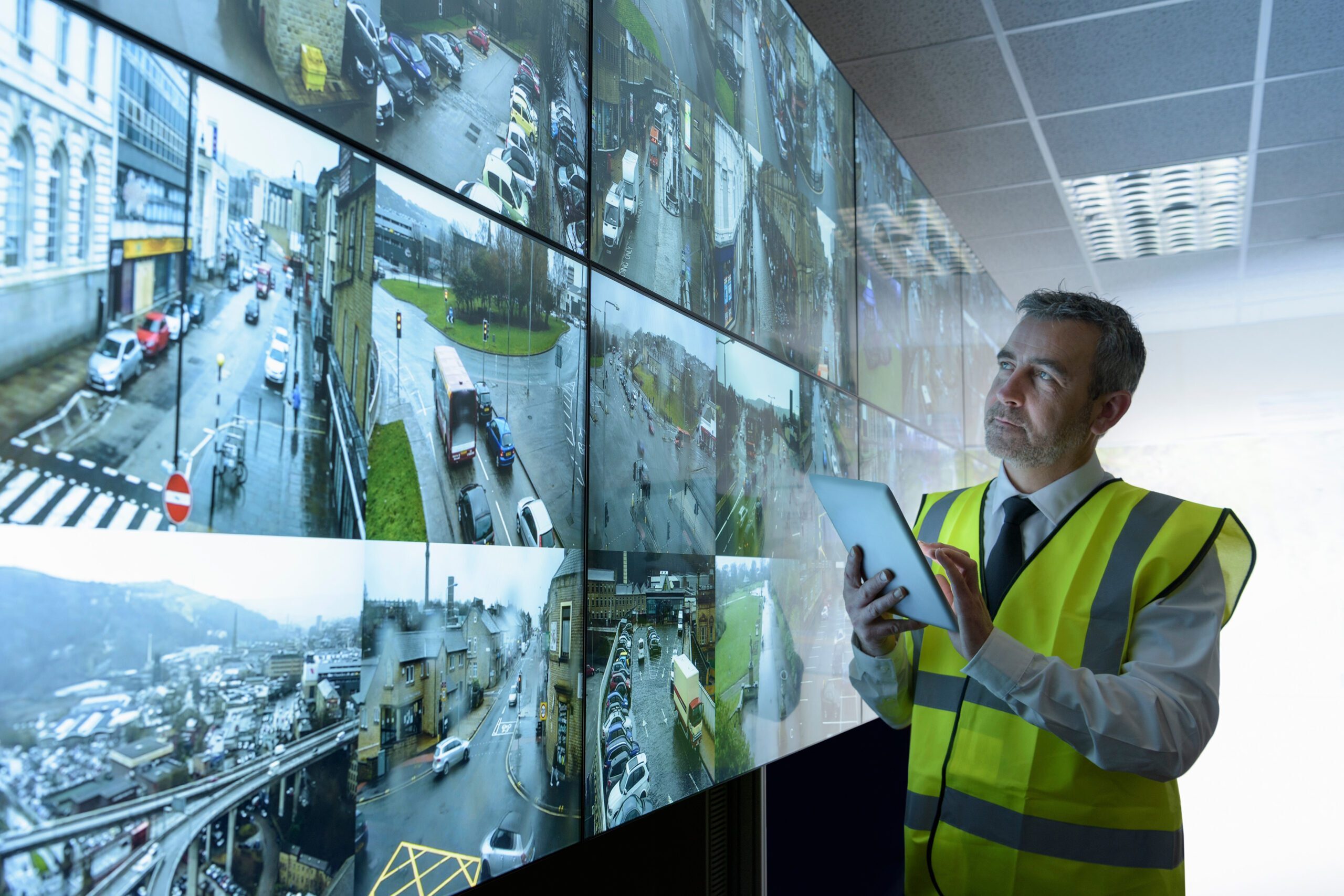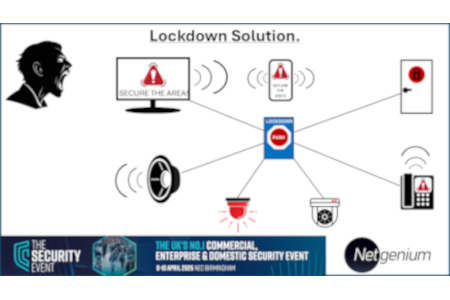Mike Reddington, Chief Executive, British Security Industry Association (BSIA) talks exclusively to SND-UK about guiding the security industry through uncertainty
The organisation’s members are responsible for more than 70% of privately provided UK security products and services (by turnover) including the manufacture, distribution and installation of electronic and physical security equipment and the provision of security guarding and consultancy services. The members are industry professionals ranging in size from global companies to small and medium enterprises, offering quality products and services to a vast spectrum of end-users.
The BSIA is the voice of the professional security industry, supporting and encouraging excellence; educating the marketplace on the value of quality and professional security; and creating an environment in which to flourish.
As the voice for the British security industry, how are you helping guide members during this time?
The pandemic has affected every person and business across the world in one way or another and the security industry is not excluded. However, some sectors have been more adversely affected than others, i.e. aviation, night time economy, events, hospitality, cash & valuables in transit and more.
Although we as an industry are not immune from the impact of COVID, we are more resilient than some sectors and we believe our sector will continue to fare well during this crisis.
As the professional security industry trade body our duty is not only to support our members but also to set foundations for the wider industry. In early March 2020 as the potential for a first lockdown was announced we lobbied the Government for key worker classification status for those operating in the professional security industry. We created templates for members to use if travel restrictions were implemented and dedicated part of our website to collated key information on the COVID-19 pandemic, saving members and the wider industry time on finding correct and up-to-date information. As the lockdown eased, we created an advice document specifically aimed at mobile workers and continue to regularly update our audience with bulletins and social media with vital information. In July 2020, our Chairman’s Recognition Award went to all our members’ security officers operating on the frontline and our applause went out to the industry. The national media kept us as a primary point of contact throughout this period, especially as security presence grew in essential retail. We launched a number of campaigns during this time to help those affected sectors, such as ‘the Hidden Workforce’ campaign, which tackled the perceptions of the security officer and what we can do to change this, and Cash is a SAFE Choice, which highlighted the need for cash in society and the safety of it despite a global pandemic.
We know there is always more which can be done and we would encourage members to reach out to us if they have any concerns they feel we can assist with.
With the shift to remote working, do you think e-learning and digital training will continue post-covid?
Absolutely as there are so many advantages to learning online and digitally, flexibility being a key feature – meaning learning is online and available 24/7. Removing barriers to access training is incredibly important in our industry in order to grow the sector skills, reduce the skills shortage and ensure employers have suitably qualified staff. Digital/online training is not always appropriate for all training requirements and just one example of this would be preparing apprentices for their End Point Assessments as this requires some practical elements, which lockdown has delayed. We believe an ideal model is a hybrid approach.
Do you see any security concerns arising given the recent government guidelines of lifting restrictions?
We shared this question with a few of our security officer services members and their biggest concern was on resources and capacity when businesses begin to reopen. Everyone will want a normal capacity from the word go. Whilst there appears to be sufficient SIA licensed operators in our sector, there may not be enough active security operatives to fill all the potential additional roles required. A prime example of this would be the ‘Night-time economy’ sector where many qualified door supervisors have taken jobs within other areas, including moving to other industries and may not want to return to their previous role. One of our members has voiced concerns over pubs possibly offering cash in hand to attract employees once the fight for resources begins.
In other areas of security, rapid reopening of locations and expecting services to resume immediately at pre-COVID levels is also concerning.
Has this time made it difficult to recruit new people to the industry, how is Skills for Security helping pave the way for young people?
During the pandemic Skills for Security (SfS) has doubled the number of apprentices enrolled on their program over the last 18 months. They have continued to go from strength-to-strength and have recruited more apprentices this quarter than in Quarter 1 pre-COVID. SfS recruited over 100 apprentices in the last six months, which brings a current total of 250 apprentices on the programme and is on track to have over 300 by year-end. The industry is proving its resilience which is extremely exciting showing skills and competency are critical for our sector’s survival and prosperity. SfS and all the other FESS apprenticeship providers are doing a tremendous job in addressing the resource and skills shortage and securing the viability of the sector for years to come. The Government has also recently announced enhanced incentives for employers to receive up to £4,000 between April and September if they recruit an apprentice and this will hopefully continue to boost the recruitment of apprentices across our sector.
We have seen the industry rise to new challenges from Covid-19, how important is it to continuously evolve and modernise as an industry?
Sadly, the pandemic has created many issues however, one of the positives during 2020 has been the rapid increase in the acceptance and adoption of technology. We saw the increase of digital remote working solutions, contactless entry/exits, adoption of thermal imaging cameras, occupancy and people flow management – all potential solutions to address the issues created by the pandemic. The professional security industry is both proactive and adaptive to sudden changes to market requirements, hence the resilience it has shown during these difficult times. Additional technology solutions are also available but they do need our industry to promote and where applicable help regulate their ethical and legal usage, such as our recently produced guide on artificial intelligence (AI) and Automated Facial Recognition (AFR) and our award-winning code of practice on cybersecurity, produced by our Cyber Assurance Product Assurance Group (CySPAG).
We need to continue to upskill operators in both the electronic and physical security sector, which can be done through SfS and our recently relaunched security officer services training arm, SITO, which will assist us in closing the skills gap and maintaining a professional workforce across the board within our industry sector.
Does BSIA have any big plans for 2021 which you could disclose to us?
We are working on many initiatives with our members and the industry and just few to note are:
- The Next Generation Network (NGN) All-IP transition which has started in some areas with a targeted 2025 completion date.
- A big focus on our Hidden Workforce – Perceptions campaign.
- The adoption and usage of AI/AFR in an ethical and legally compliant way.
- The Electronic Call Handling Operations (ECHO) launch will be happening later this year with two major police forces already preparing to start accepting the service very soon.
- Last but not least, the BSIA and its members will continue to proactively work on new and existing codes of practice and British standards.
Anything else to note?
I would like to take a moment to mention just how far both the BSIA and Skills for Security have progressed in the last two years. Both teams have worked incredibly hard especially during the pandemic and the switch to remote working. Skills for Security is now the largest fire and security apprenticeship provider in England and continues to grow day by day.
I would like to thank both teams for all their hard work and also our members and industry partners for their continued engagement and support as we continue to progress the association during 2021 and beyond.
The benefits of BSIA Membership
BSIA membership will give your business a commercial advantage and ensure that you are at the heart of influencing the future of the security industry. You will become part of a unique group of high quality and professional companies which are well-respected and well-represented to government, end users, specifiers, standards and legislative bodies.
The BSIA logo isn’t just a hallmark of distinction that ensures your company stands out from its peers, the Association also offers real benefits which ensure you have the tools to stay ahead in the competitive security industry. By joining the BSIA you will benefit from a number of services and added-value benefits which can make a real difference to your business and prove you are head and shoulders above your competitors
BSIA membership offers excellent value for money and costs can be spread throughout the year to make joining the Association even more affordable.


























